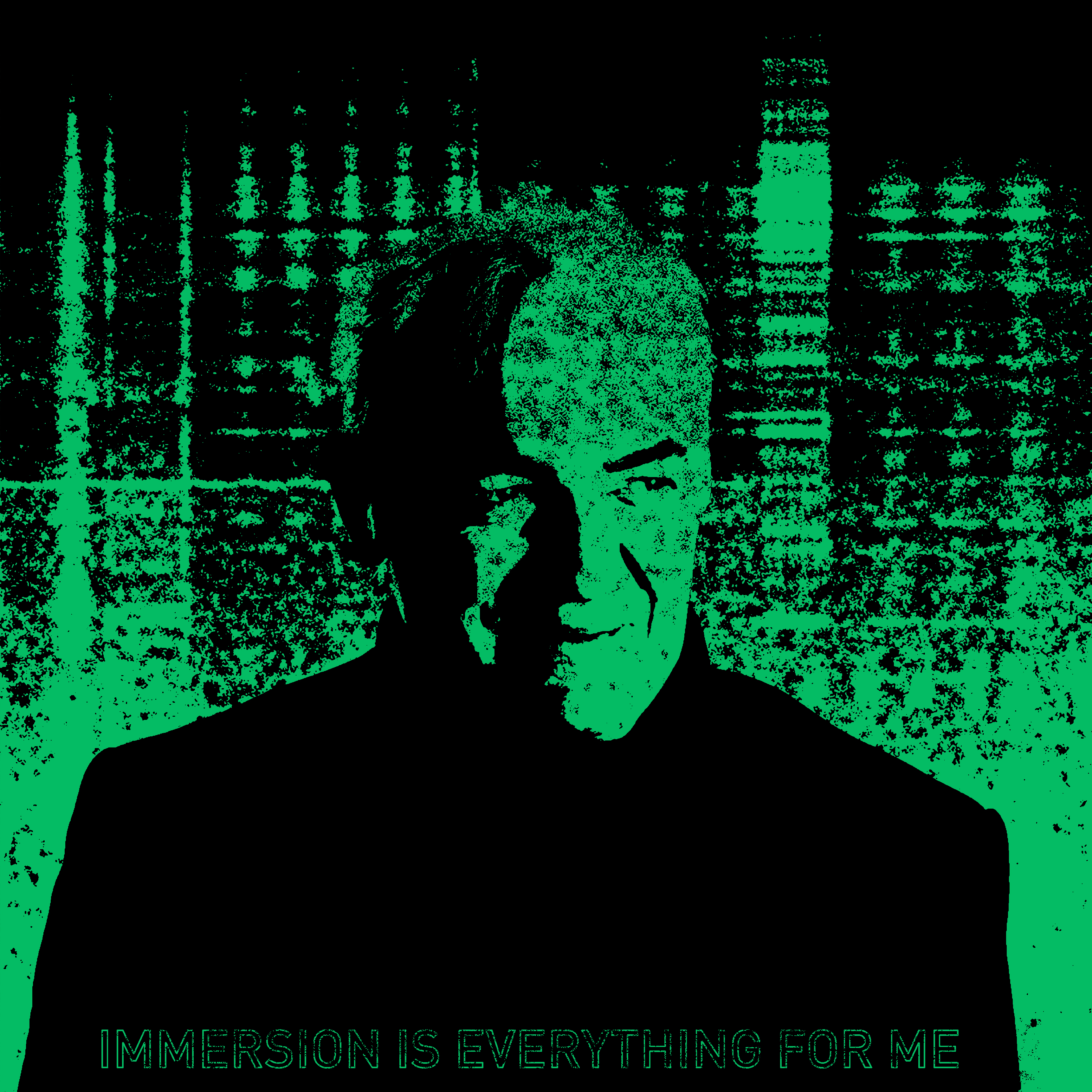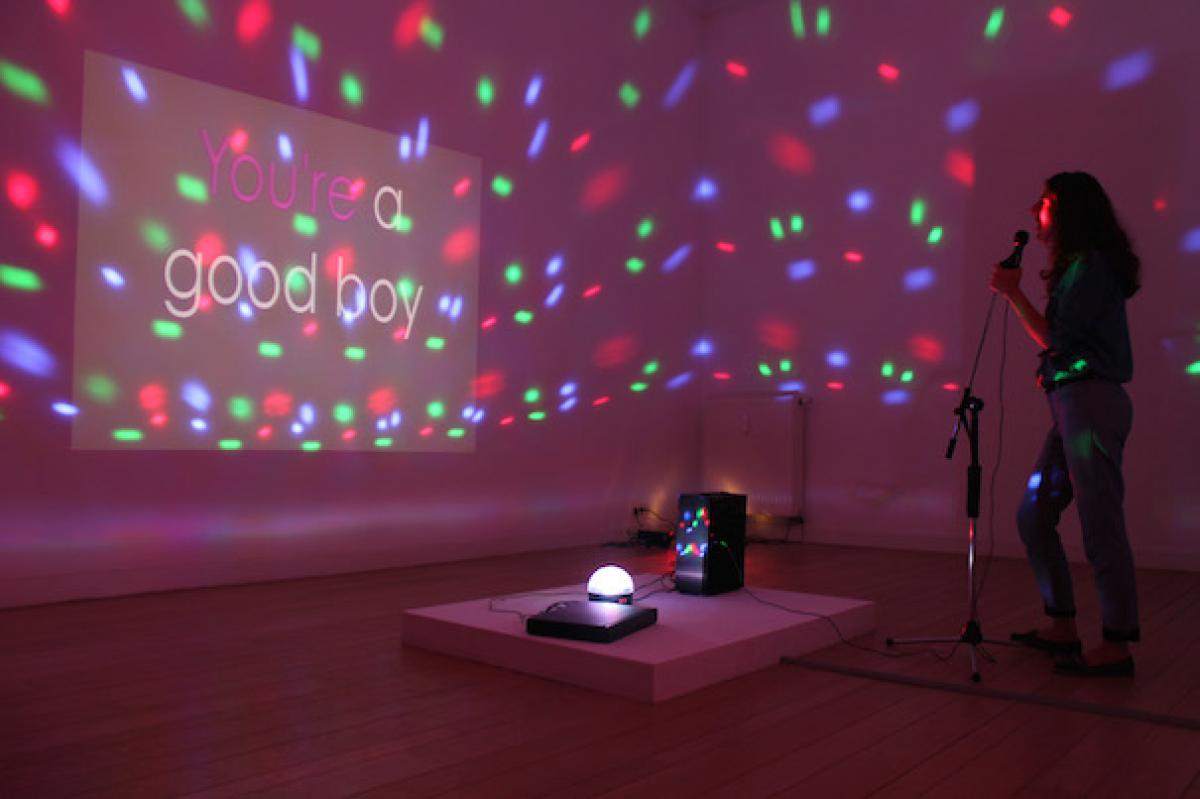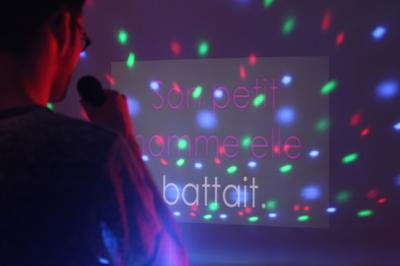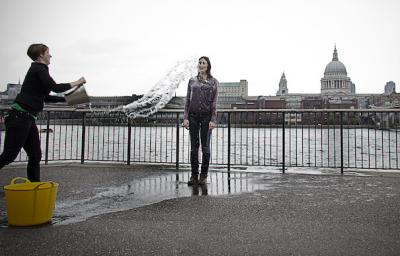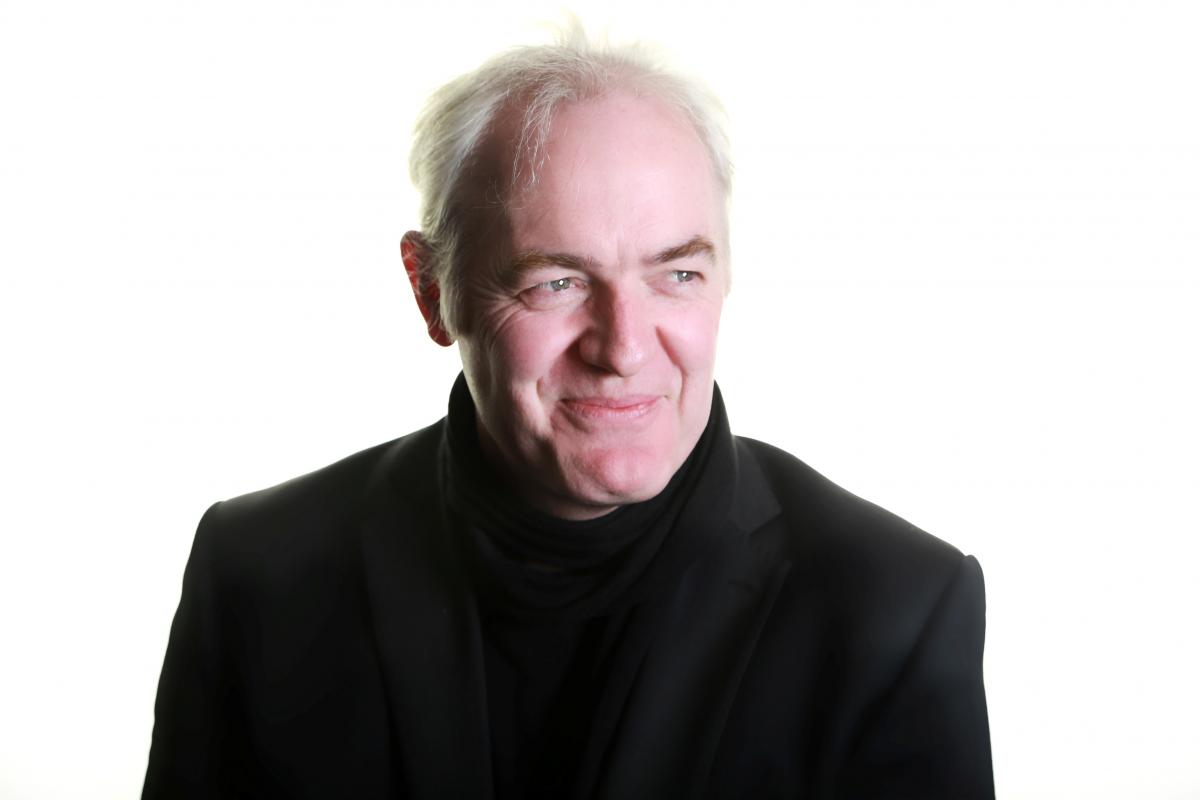
Radio Art #1
Bernard Clarke is an award-winning radio broadcaster with RTÉ lyric fm, Ireland. On his new music programme, Nova, he combines contemporary music, history, Zeitfragen and politics to intense Radio Art pieces. I met him at the 2014 Ars Acustica meeting in Geneva, and enjoyed his complaint about an often heard comment: «This is too heavy for the listener.» «One day», Clarke said with irony, «I’m going to kill this one listener. I don’t believe that he or she even exists». Later, I heard his amazing work via Soundcloud. In «Tracing A-7063», for example, he narrates stories of Holocaust survivers through audio memory talk, music and sound [see liner notes of the piece below]. Moved by his works, I decided to send him a few questions via email.
[Thomas Burkhalter]: Why does Radio fascinate you?
[Bernard Clarke]: In a word: ephemerality. I find its very transience bewitching and frustrating. It also has the power within the listening moment to present lies as truths and truths as lies, where even jesting Pilate stays for an answer. Its rich sonic history is also dazzling: a journey into the archives is very illuminating, not only for accents, styles of presentation, the dead and so on; but also for noises on and noises off, microphone placements, jingles, theme tunes. In some of the early reels and tapes in RTÉ (Ireland’s state broadcaster) there are drafts of programmes with presenter and producer recording. The station was also at one stage situated beneath the General Post Office in O’Connell Street, in Dublin (literally in the city centre) and you can hear the rumblings of traffic, but also doors opening and shutting, footsteps and stray conversations suddenly passing you, listener listening, by.
[TB]: What are the aesthetic (and maybe technical) questions you are experimenting with these days?
[BC]: Immersion is everything for me – I want to immerse the listener in whatever experience is unfolding. But my dreams are far ahead of my abilities, so I spend a lot of time trying to realize even a shadow of them. Aesthetically, for me at least, I’m trying to reconnect the signal between what came before radio art and musique concrète. One did not grow out of the other, though both are now almost warring siblings, or at least estranged. It’s a weird thing. Ted Hughes’ poem «A Childish Prank» from «Crow» sums it up:
Man’s and woman’s bodies lay without souls
Dully gaping, foolishly staring, inert
On the flowers of Eden.
God pondered.
The problem was so great, it dragged him asleep.
Crow laughed.
He bit the Worm, God’s only son,
Into two writhing halves.
He stuffed into man the tail half
With the wounded end hanging out.
He stuffed the head half headfirst into woman
And it crept in deeper and up
To peer out through her eyes
Calling it’s tail-half to join up quickly, quickly
Because O it was painful…
So it’s Crow FM for me, stuffing one into the other.
[TB]: What are moments you liked most in your radio work of the last year?
[BC]: To be brutally honest almost none. I’m looking forward to the day when I can listen to something without wincing and hearing the short-cuts. But not to be too pessimistic: subject matter is now absolutely everything for me and dictates form, tempo, mood, color. One piece true to that stance is «Tracing A-7063»; one completely opposite it is the he and the she of it. Both work, though I still wince and hide behind the sofa.
Liner Notes of «Tracing A-7063»
«Tracing A-7063» is a radiophonic impression of a new documentary film in progress (working title «A-7063») by the young Polish director Maciek Klich. It grew out of a conversation with Maciek: in Auschwitz last year he met survivor Eva Mozes Tor and interviewed her concerning her experiences at the hands of the infamous Doctor Joseph Mengele. Maciek has set out to tell Eva Mozes Tors’ story in documentary film and animation for the memory sequences of her experience in the Holocaust.
I was intrigued and inspired by what he told me and set out to render such a dual style of narrating a story in sound. I divided my sources into old and new, black and white. I dipped into archive interview audio of concentration camp survivors Roman Halter, Ruth Foster and Maria Ossowski (for me bleached out memory pieces) and also used some of Maciek’s present day interview with Eva Mozes Tor (for me this is black, a stereo present, but also black haunted memory).
I did the same with the music: the opening of Mozart’s Requiem (in a recording as approved by the Nazi regime made in 1941, with all references to Christianity’s Jewish roots excised: «Te decet hymnus, Deus in Sion» was replaced by «Deus in coelis»; whilst «in Jerusalem» was replaced by «hic in terra») with its whish and crackles and pops-I used these very surface noises to generate (through additive and granular synthesis) a lot of the sounds that follow.
I also transformed the shouts of Sieg Heil Sieg Heil and then used the results to generate the soundscaping of the various music (s) that «frame» the voices. The greatest challenge I faced was the risk of sensationalizing the material: alas, there is what is now called a «Holocaust Industry» particularly in print, so what was uppermost in my mind was respecting the voices, keeping them as the primary sonic material and letting them tell their tales. That said I also wanted these voices and sounds to work sometimes in opposition and sometimes in complimenting each other.
To do this I turned some of my new soundscapes to traces of themselves (blacks to grey’s): for instance the sound beneath Eva Mozes Tor’s tale of her being tattooed is a stereo rendering bleached out and scratched up to suggest vinyl and also the burning of the pen and ink that will mark her forever: A-7063.
The first version of this won Best Audio (Yamaha Música award) at this years Black & White International Festival in Porto, Portugal
Bernard Clarke (B. 1967) is an award-winning radio broadcaster with RTÉ lyric fm, Ireland. His new music programme, Nova, has won five consecutive PPI Radio Awards (National Irish Radio Awards) and one New York Festival’s award; he’s also won prizes for documentaries on Patrick Kavanagh, Glenn Gould, The Doors, and Jimi Hendrix. Clarke has also been shortlisted for the Prix Italia (Cagliari, 2008), the Prix Europa (Berlin, 2011), the Prix Phonurgia Nova (Paris, 2012); the Black &White International Audio Festival (Porto, 2013); and has just won Best Audio at the Black &White International Audio Festival (Porto, 2014).
Though he has extensive radio experience, his work in radio art is still fairly new with his radio art pieces being broadcast in Ireland, Germany, France, Austria, Czech Republic, The Netherlands, Spain, USA and Australia. He is a member of the EBU Ars Acustica Group and his interests include sound, sound, and sound.
Biography
Links
Published on July 18, 2014
Last updated on April 09, 2024
Topics
Music and art that dealing with the unfinished and undefined.
Does a crematorium really have worst sounds in the world? Is there a sound free of any symbolic meaning?
Snap
